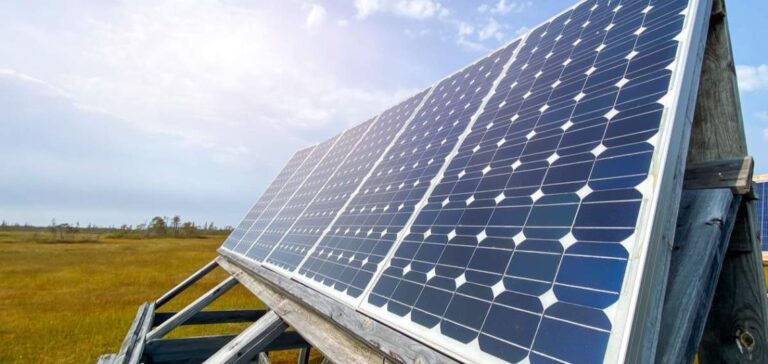Several Chinese solar panel manufacturers are seeking to circumvent the tariffs imposed by Washington on products made in China by carrying out final assembly in other countries in the region, the Department of Commerce (DoC) said on Friday.
Solar industry: Investigation reveals circumvention of US tariffs
In June 2022, the White House announced that it would suspend tariffs on certain solar panel parts imported from four Asian countries for two years, although this did not apply to products from China.
The stated aim of this decision is to enable American manufacturers to increase their production by ensuring a “reliable supply of components”, according to Washington at the time.
But according to a DoC survey, Chinese manufacturers are carrying out the final assembly of their products in these four countries – Cambodia, Vietnam, Malaysia and Thailand – in order to benefit from this suspension of customs duties.
“At least five companies attempted to avoid paying duties by conducting minor operations in another country. The Department also identified other companies, not the subject of the investigation, that were also circumventing the duties,” the US department detailed in a statement.
The outcome of the investigation, however, will have “no immediate impact at the border”, the DoC added, “in order to give importers time to adapt their supply chains and ensure that it does not come from companies violating U.S. law”.
Nevertheless, the investigation “underscores the Department’s commitment to holding China accountable for practices that distort competition and hurt U.S. businesses, markets and workers”.
The investigation was launched at the beginning of June, at the same time as the decision to suspend customs duties on products from these four countries. However, as early as June 2022, the Commerce Department made it clear that the conclusion of this investigation would not lead to a decision during the 24 months of tariff suspension.






















